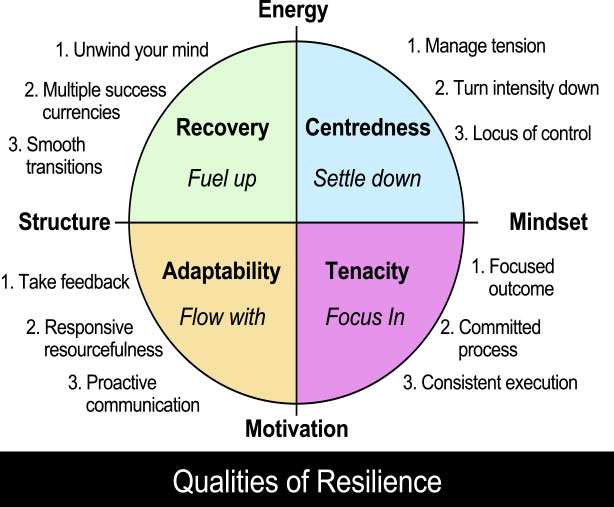 Download a printable copy of this article (PDF 646KB)
Download a printable copy of this article (PDF 646KB)
- Resilience is not just for children.
- Be aware of staff resilience levels.
- Develop a focus for fostering staff resilience.
- Take comprehensive action as needed.
- Think about how well your teachers accept feedback about performance.
When did resilience become something that we associated primarily with younger people? In the rush to identify the lack of resilience in our students, shown through a lack of initiative, a waning ability to cope with adversity and a growing wish to be rescued from any social, physical, emotional or academic difficulty, we have forgotten exactly what resilience is.
“The human capacity for burden is like bamboo – far more flexible than you’d ever believe at first glance.”
– Jodi Picoult
Resilience is the ability to bounce back. The ability to thrive despite risk is an alternative definition. Resilient children and adults are those who might be described as having the ability to grow through the cracks in the concrete if they must. With this view of resilience, it is possible to ask why it applies to children as opposed to people more broadly. What happens when students who lack resilience become adults or even teachers? What happens when low levels of resilience are evident in our staff teams? Arguably, this more than any other social capacity, will negatively impact team performance in schools.
Anecdotally, I’ve met with several school leaders who have concerns about declining levels of resilience among staff members. When confronted with difficulty, leaders tell me that more and more team members are inclined to:
- blame others
- defer to workload issues
- take days off
- react emotionally to feedback
- seek solace in alcohol or other avoidant substances
This is concerning for educators nationally. Would it not be more effective to strive for a position where teachers welcome constructive criticism, deprivatise practice and celebrate more meaningfully the alignment between practice and strategic intent?
For this reason, I invited renowned resilience expert, Michael Licenblat, to guest host one of our regular Real Schools webinars. You can watch on the recording of this webinar on Youtube.
Michael spoke about the critical role that we have in modelling resilient behaviours for our teachers and their teams, as opposed to merely teaching resilience to students. Further, he referenced the cost to schools of having teams who crack under pressure. The webinar, titled “Pressure Proof Teaching Teams” has created a real stir in the Real Schools community too.
Specifically, Michael spoke to a resilience model that many of us can place ourselves and our schools in and use to determine effective actions. You can see this model below.

Most powerful to me was Michael’s insistence that singular actions, randomly chosen, such as Friday afternoon drinks are unlikely to work – it takes more focus. We left the webinar very inclined to agree.





